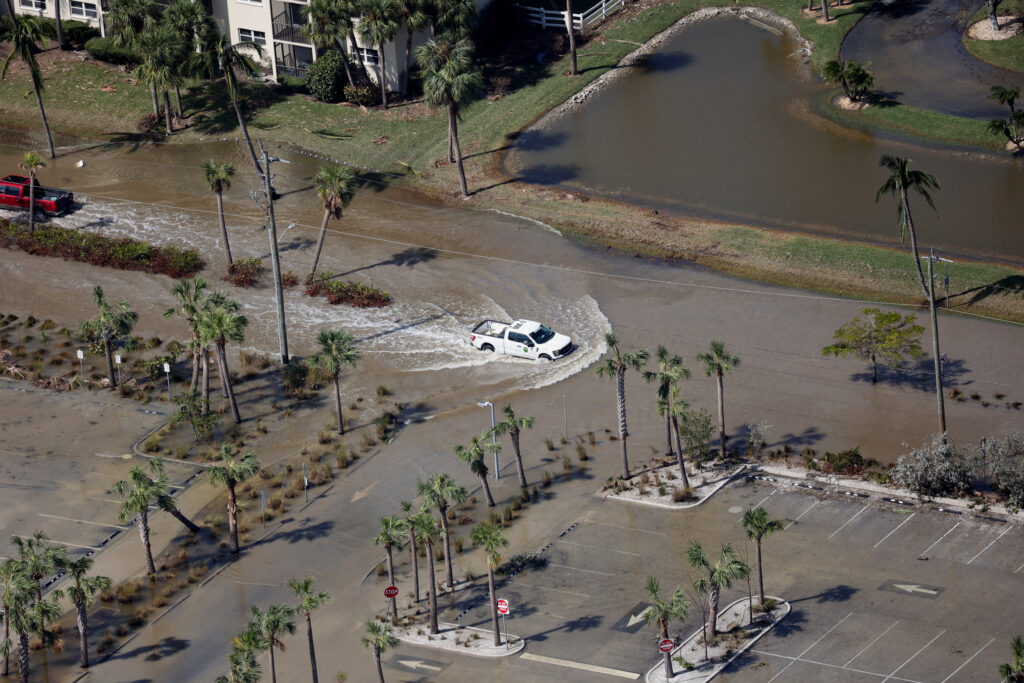Fallen debris, displaced people, flooded homes and roads filled with lines and lines of traffic. These phrases perfectly describe the situation that many people in the Caribbean and Florida, a state in the United States of America are going through because of Milton.
Hurricane Milton was a tropical cyclone that became the second most which became the second-most intense Atlantic hurricane ever recorded over the Gulf of Mexico, behind only Hurricane Rita in 2005. The hurricane is the strongest tropical cyclone worldwide in 2024 so far. The hurricane formed on October 5th and made landfall on October 10th . In less than a day, it went from a smaller hurricane to a Category 5 (hurricanes which cause catastrophic damage). It is also the second Category 5 hurricane of the 2024 Atlantic hurricane season, after Hurricane Helene.
Category 5 hurricanes have wind speeds of over 155 miles per hour (mph) and can uproot whole homes and trees from the ground. The water that rolled in when the hurricane made landfall flooded many homes, schools and many other locations. No place was free from devastation. Due to the immense danger associated with this natural disaster, at least sixteen (16) people lost their lives and over 2.4 million homes lost their power, making those who stayed behind even more vulnerable.

Those who stayed were evidently the most at risk. Some stayed because they wanted to while others stayed because they could not afford to evacuate due to the increased prices of travel items, like plane tickets to leave Florida to other states.
Minus the impact that Hurricane Milton had on humans, there were also some adverse effects on animals, plants and the natural world. The strong winds and waves that are associated with hurricanes break coral, disrupting various ecosystems. Aquatic organisms face turbulent conditions due to waves and winds.
Many trees are lost and uprooted due to the large scale flooding that occurs. Due to saltwater intrusion from the storm surges caused by hurricanes, freshwater bodies like rivers and lakes are subject to changing salinity which causes the plants and animals who call these fresh water bodies home to be subjected to severely brackish conditions. The strong winds from hurricanes also dislocate sea and migratory birds caught in the eye of the storm.
Even up to this moment, many are trying to salvage what they have left from the wreckage while others aim to start anew and rebuild what they have already lost. Hurricane Milton was definitely a testament to the power of the forces of nature. Nature is definitely something that should never be trifled with. Moving forward, evacuations should be conducted much earlier to avoid more tedious situations (very long traffic jams). Additionally, it is my firm belief should not underestimate the power of hurricanes and defy the power of authorities and experts who definitely know more about natural disaster like this.
This very dangerous hurricane calls for further improvements in disaster preparedness not only by the government but also by individuals living in hurricane prone regions.

